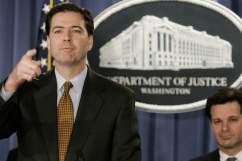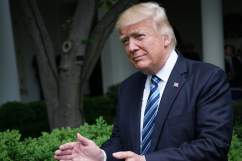
James A. Baker, who serves as the FBI‘s General Counsel, is reportedly one of three people who can corroborate fired FBI Director James Comey‘s version of events in a private Oval Office meeting between Comey and President Donald Trump. Comey wrote in a memo that Trump asked him to drop the federal investigation into former National Security Adviser Michael Flynn.
On July 26, Circa reported that Baker is under investigation for allegedly leaking classified information to the press. Three sources told Circa that Baker is the top suspect in the investigation, but the site couldn’t confirm exactly what information Baker is suspected of leaking.
In addition to serving the FBI, Baker is also a professor at Harvard Law School. He began working in the federal government during the Clinton administration, when he was a federal prosecutor in the Criminal Division of the Department of Justice during the 1990s. In 1996, he joined the Office of Intelligence Policy and Review. Baker continued serving in the Justice Department under President George W. Bush. After a short tenure at Verizon Business, he returned to the Department of Justice in 2009. In January 2014, he was named the FBI’s General Counsel.
Here’s what you need to know about Baker.
1. Baker Was Reportedly 1 of 3 People Comey Personally Told About Trump’s Flynn Investigation Request
Back on May 16, The New York Times reported that Comey wrote a memo, in which he described a private meeting with Trump at the Oval Office in February, after Flynn was forced to resign for misleading Vice President Mike Pence about his discussions with the Russian ambassador in December. Comey wrote that Trump asked him to drop the federal investigation.
“I hope you can see your way clear to letting this go, to letting Flynn go,” Trump told Comey, according to the memo. “He is a good guy. I hope you can let this go.”
The White House claimed that Comey’s version of events was wrong.
“While the president has repeatedly expressed his view that General Flynn is a decent man who served and protected our country, the president has never asked Mr. Comey or anyone else to end any investigation, including any investigation involving General Flynn,” the administration said in a statement to the Times. “The president has the utmost respect for our law enforcement agencies, and all investigations. This is not a truthful or accurate portrayal of the conversation between the president and Mr. Comey.”
However, Vox reports that Comey told Baker and two others – now-acting FBI Director Andrew McCabe and Comey’s Chief of Staff Jim Rybicki – about the meeting with Trump in private conversations. Sources told Vox that Comey spoke to the three men within two days of the Oval Office meeting.
Sources told Vox that Comey spoke to Baker first, asking him for legal advice. A source adds that Baker “almost certainly made extensive notes about those deliberations” about the Oval Office meeting, according to Vox.
Vox reports that after Comey told Baker, the two spoke with Rybicki and McCabe about possibly informing the Justice Department about Trump’s behavior. However, they were not sure if they could trust Attorney General Jeff Sessions.
2. Baker Previously Led the Justice Department Division That Became the DOJ’s National Security Division
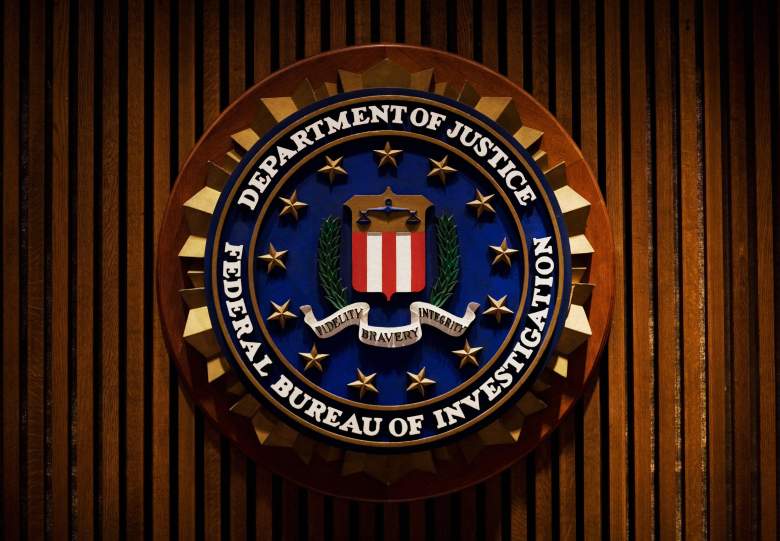
(Getty)
When Baker was named the FBI’s general counsel, the Bureau touted Baker’s experience with national security issues. From 2001 to 2007, during the Bush Administration, Baker was counsel for intelligence policy and head of the Office of Intelligence Policy and Review (OIPR). This office would develop into the Office of Intelligence, which is part of the DOJ’s National Security Division.
“In this position, he developed, coordinated, and implemented national security policy with regard to intelligence and counterintelligence matters for the department,” the FBI’s statement reads. “Moreover, he provided the attorney general, the U.S. intelligence community, and the White House with legal and policy advice on a range of national security issues and conducted oversight of the intelligence community, including the FBI, on behalf of the attorney general.”
“Jim’s experience as a career prosecutor and as a national security official, as well his experience in the private sector, make him an excellent fit for his new position here at the FBI,” Comey said in a statement in 2014.
After leaving the DOJ in 2007, Baker spent two years as the assistant general counsel for national security at Verizon Business. From 2009 to 2011, he was back at the DOJ, working on national security issues as an associate deputy attorney general.
3. It Was Baker’s Job to Ready FISA Applications for Domestic Surveillance
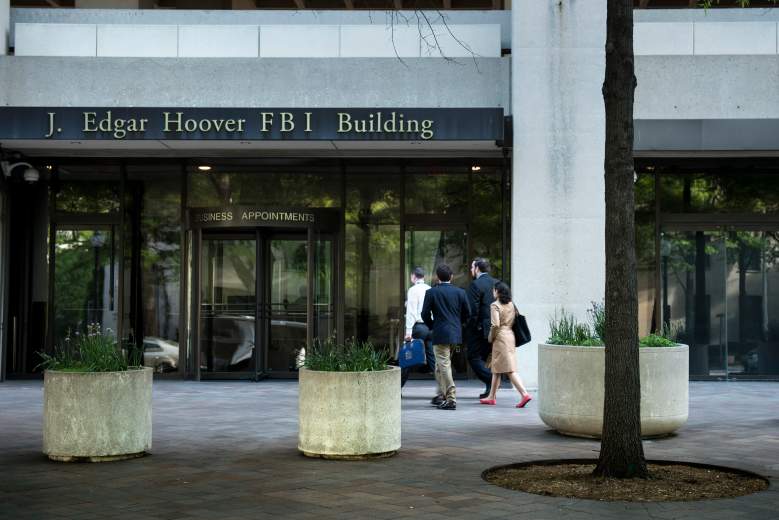
(Getty)
During his first tenure at the DOJ, Baker became a respected expert on the Foreign Intelligence Surveillance Act of 1978 (FISA) and the U.S. Foreign Intelligence Surveillance Court (FISC). The court is made up of 11 judges who hear requests from the FBI, CIA and other intelligence agencies for warrants against foreign spies in the U.S.
According to PBS, it was Baker’s job to file and prepare all applications for domestic surveillance under FISA when he led the OIPR.
“The lion’s share of our work on a day-to-day basis is preparing and filing applications to conduct electronic surveillance for physical search, in particular with the Foreign Intelligence Surveillance Court [FISC], the FISA court,” Baker explained to PBS. “In order to accomplish that, we have about 125, 130 people in the office, about 85 or 90 attorneys who do that work. They handle a variety of things in addition to preparing the FISA applications — policy work, oversight, doing some litigation when a FISA target is prosecuted in a criminal case.”
Baker also fought the notion that the FISA court only existed as a rubber stamp. During his tenure, he was handling 2,000 applications for surveillance a year. He also didn’t think the court needed to be modernized.
“Every FISA application has to have minimization procedures,” he said of the effort to protect Americans’ privacy. “Those minimization procedures require us to reduce the amount of irrelevant [information], meaning substantively irrelevant or irrelevant because it has to do with some other person who we’re not interested in. Every application has to have with it these procedures, and they require us to reduce the amount of irrelevant information that we acquire, the amount of irrelevant information that we retain and the amount of irrelevant information that we disseminate, so those three different stages of minimization.”
4. Baker Was Sent to SXSW in Comey’s Place After Trump’s Wiretapping Claims
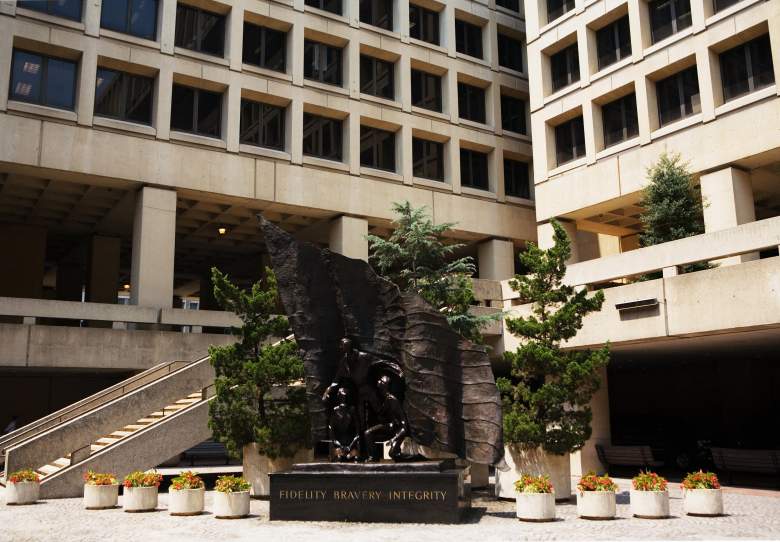
(Getty)
It was Baker who was dispatched to Austin for the SXSW conference in March. Comey was supposed to speak at the event, but he pulled out after Trump suddenly accused Obama of wiretapping Trump Tower during the transition without any evidence.
The Verge described Baker’s appearance as “criminally bland” since he just covered basic FBI talking points. He said he has a “whole team of lawyers that think about nothing but privacy all day long” and how the bureau supports “strong encryption.” No one in the audience asked Baker serious questions or how the FBI would handle Trump’s wiretapping accusations. Comey told Congress there was no evidence that the Obama Administration requested Trump Tower be wiretapped.
Baker could have discussed his distaste for WhatsApp’s encryption. In April 2016, Baker said the Facebook-owned app’s derision to encrypt messages “presents us with a significant problem.”
“If the public does nothing, encryption like that will continue to roll out,” Baker said at an International Association of Privacy Professionals event. “It has public safety costs. Folks have to understand that, and figure out how they are going to deal with that. Do they want the public to bear those costs? Do they want the victims of terrorism to bear those costs?”
5. Baker Is a Harvard Law School Professor & Graduated From Michigan
Baker is still a Harvard Law School professor, most recently lecturing last fall, according to his Harvard bio. Baker earned his B.A. from the University of Notre Dame. He earned his Masters and J.D. at the University of Michigan.
Baker’s career started in Michigan. His postgraduate clerkship was in the U.S. District Court for the Eastern District of Michigan with Bernard A. Friedman. His experiencce there inspiredh im to spend most of his career in public service.
“That was a fantastic opportunity in many ways, but among them was the fact that at the District Court you are able to see a whole range of matters and parts of the law in practice,” Baker told Michigan Law in 2014. “That visibility helped me figure out that among the things I was seeing, the work of the U.S. Attorney’s Office was the most interesting. As a result of that influence I decided to apply to the U.S. Department of Justice.”
When asked for his advice to law school students, he said, “Follow your passion. Think about why you are in law school and what you want to out of a legal career. Lawyers really need to follow their passion and do what excites them if they want to lead a rich and rewarding life.”

